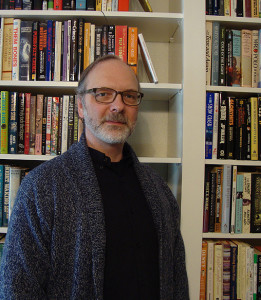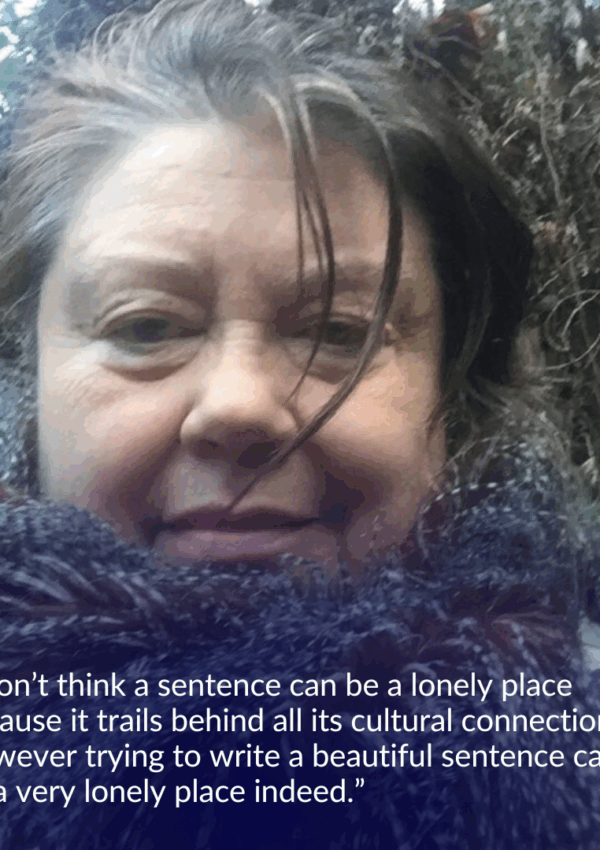I once pointed a creative writing student in search of mystery story ideas to a Twitter feed that aggregates crime news from across the country.
“That’s going to depress me all day,” he said.
That wasn’t my intent of course. I hoped headlines would begin a quest by piquing his curiosity and imagination. Sometimes I encourage students to free write based just on the headlines without further reading, so that their ideas flow.
I base that in part on a Facebook message from Texas author Joe R. Lansdale, noted most recently for his Hap and Leonard novels, which spawned the Sundance series. He revealed that sometimes he begins with a news story, setting down an account of what really happened until his imagination takes the reins from the real and steers toward something all new. It’s an interesting process.
The tease of even less information than an article, just the headline, I think, is the best nucleus of an exploration for student writers and really any writers casting about for something to fill a blank page. It’s better not to be confused with the facts, at least not at first, if you’re crafting a work of fiction. Fiction, after all, is about truth, not necessarily facts.
I’m quick to point out, when looking to news stories, we’re not vultures, not secretly praying something bad has happened to someone to give us inspiration for a tale. We’re looking for those struggles in the world that fiction seeks to probe and deal with, the conflict that is a part of life. The headlines, and sometimes, the subsequent paragraphs are indicators of the challenges we all face as humans and the infinite number of ways things go wrong. The conflicts that make up stories and life.
I stress to students the news stories give us the hard cold details. The fiction writer goes beyond the reporting of events. The fiction writer is looking not for police report details but for meaning, understanding, or perhaps just contemplation. Often it’s a sliver of truth, but it’s the revelation of the human heart that grows out of the writer’s understanding of the world and that ongoing observation of friends and strangers alike.
I find it’s those headlines that trouble me most that compel me to write, the ones that force me to keep contemplating what must have driven actions or events.
Then I begin to write about what I know of myself and of people, what I’ve noticed about behavior and human nature. I try to wed my perspective with the news story nucleus to discover the dark and light in victims, perpetrators, bystanders, or whoever’s involved.
If it’s a concept that’s come to trouble me, like the loss of privacy in the modern world, I try to think of a person or metaphor to represent that and of how it might impact individuals.
My story that appeared several issues back in Black Fox Literary Magazine grew out of reports that businesses know a great deal about us through data mining via loyalty cards and store-issued credit cards. The manipulative Mr. Berrington, who resembles 1950s-era department store floorwalkers, in my tale became the personification of department stores that knew too much, and my protagonist was soon at his puppeteering mercy.
Twitter and news sites can dish up the dark details of the daily world. Fiction can delve into the complexities and seek to offer insight and cast reflective light on the still black and white data dispensed in newsprint or the digital screen. Fiction can even choose a character through whose eyes we can view events and provide perspective, sometimes a different and unexpected perspective.
Robert Bloch forced us to see things through the eyes of Norman Bates after reading of Ed Gein’s deeds in newspapers one Wisconsin town down the road from where he lived. He had to rely on insight and imagination because papers held back some specifics. He was later shocked as court records emerged at how well he’d imagined Gein’s mind in his novel Psycho. I think that suggests the writer’s imagination coupled with observation and insight can allow powerful meditations and fictional speculations.
Scanning the headlines, for the writer, is not a matter to be depressing or to be a heartless exploiter of misfortune. It’s an invitation to wrestle with events and reality and humanity to begin a struggle, a struggle to wring out truth.
It is, if you will, an invitation to begin.
 Sidney Williams is the author of the new thriller Disciples of the Serpent from Crossroad Press and a host of other books and stories. He teaches a creative writing course focused on horror, mystery, and suspense. Find him online at http://sidisalive.com.
Sidney Williams is the author of the new thriller Disciples of the Serpent from Crossroad Press and a host of other books and stories. He teaches a creative writing course focused on horror, mystery, and suspense. Find him online at http://sidisalive.com.
Sidney’s short story, “Mr. Berrington,” appears in Black Fox Issue 12.



